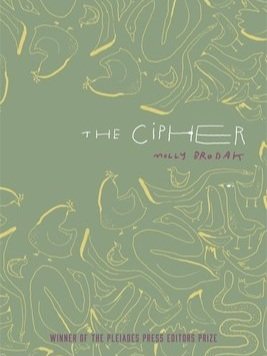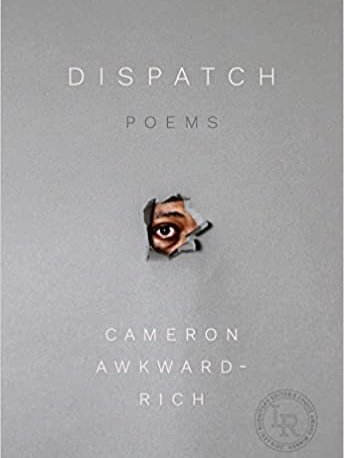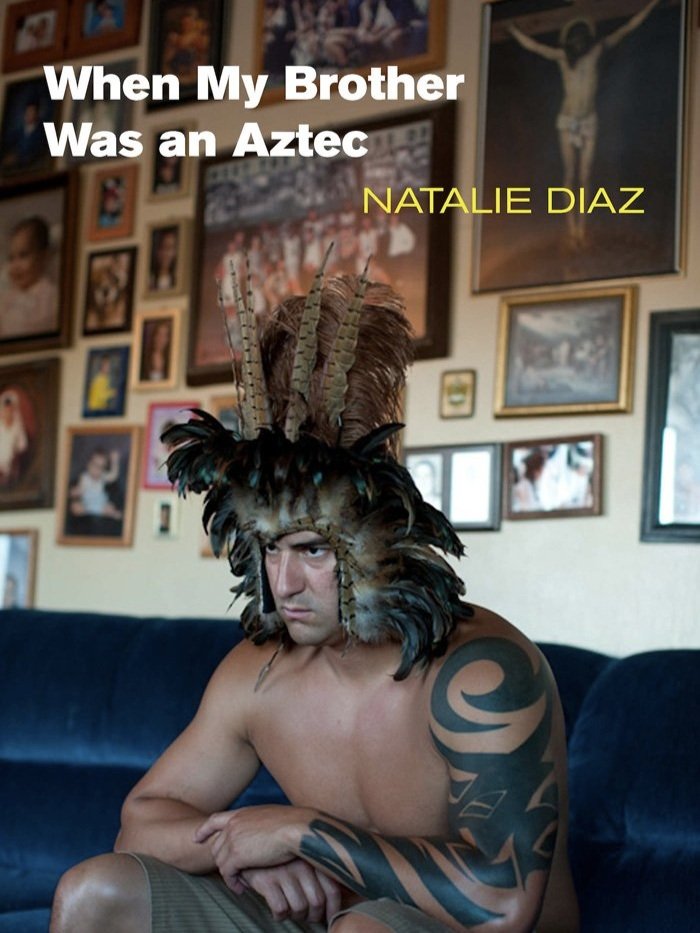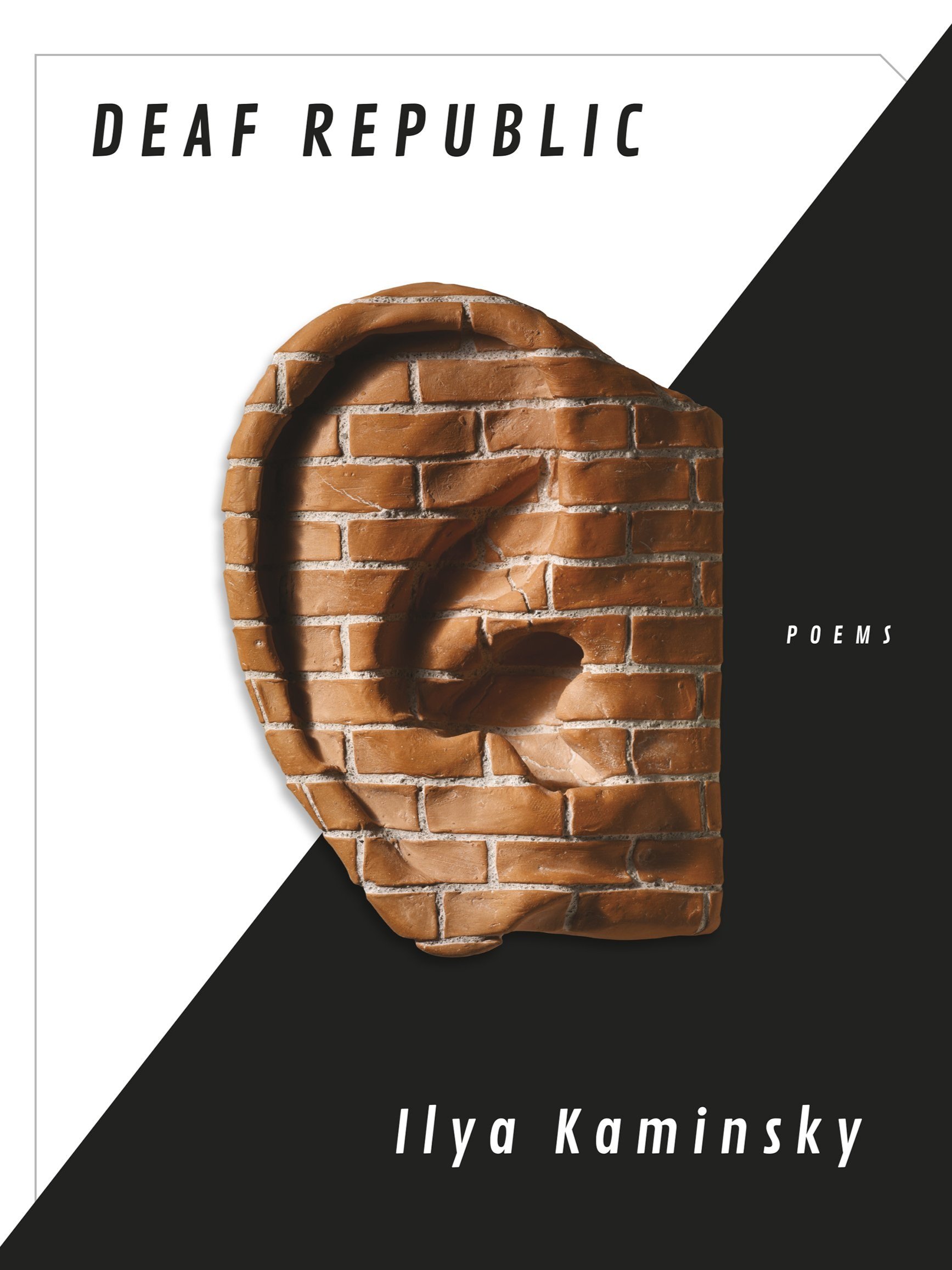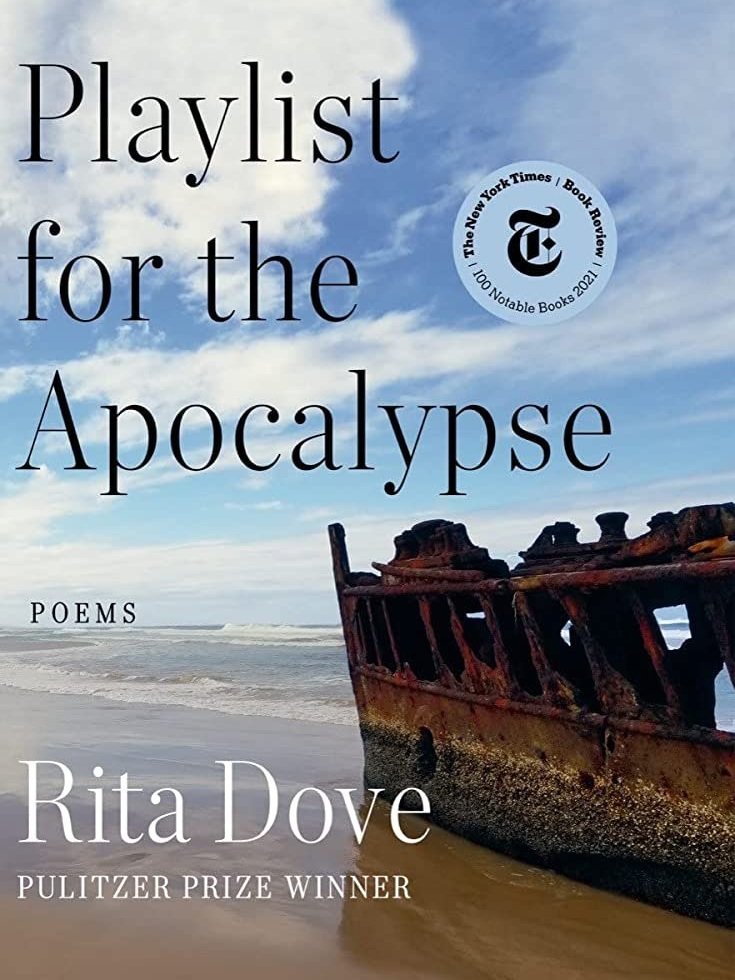“Books of poetry to change your mind about what being a person and using language can mean to you.”
Poetry often gets a bad reputation for being too oblique or esoteric to reach anyone who isn’t thirteen years old and heartbroken or pursuing an MFA. The following collections of poetry by fifteen fascinating writers all speak earnestly and plainly about the nature of existence and of language itself.
They never abandon you in the wilds of their writing, but walk by your side as you learn together what it can mean to be a human with the desire to communicate with other humans. They are generous, exhilarating pieces of writing that might change the way you think about connection through the written word.
The Cipher by Molly Brodak
Recommended by tyler watamanuk
This posthumously published book of poetry is more like a drawer of sharp tools than a bound sheaf of paper. Brodak pushes past the limits of epistemology, the study of how we can (or believe we can) “know” things, and kicks down the universe’s backdoor to let herself in, inviting us with her on her scientific expedition to find flashes of humanity along the rim of an emptiness that she doesn’t try to hedge her way out of. She forges ever ahead, even after her passing, with unforgettable insights:
“Peace
is making space for everything:
pine boards, afternoon, deceit.
Go about a little empty
and you will be good at it.”
buy here
Dispatch: Poems by Cameron Awkward-Rich
Recommended by em seely-katz
Awkward-Rich writes with levity, love, and righteous, fearful rage at the intersection of violence and sexuality as pertains to his experience as a Black, queer, disabled poet. His writing can be a joke without a punchline that hangs in the air until it becomes unbearable, an overwrought sext, a “love poem” to a persnickety proofreader, an absentmindedly racist white woman, the weight of an absence. In the end, Awkward-Rich’s biggest weapon is his devastatingly clear-sighted and tender observations about the heartbreak inherent in being human in a largely inhumane world:
“This is the world / with me in it. It is / beautiful. It is”
buy here
When My Brother Was an Aztec by Natalie Diaz
Recommended by ellie botoman
In her debut collection, Diaz invokes the forms and follies of a host of different mythologies, from those in her own indigenous Mojave tradition, to ancient Greek gods and heroes, to Jesus Christ to mediate drug-fueled family conflict set in the context of contemporary life as a Native American. Diaz claws her way out of and into imagery sharp enough you wouldn’t feel its cut, big enough to encompass 9/11 and raisins and menstruation and the story of Genesis but small enough to crawl inside of and commune with her hard-earned moments of softness:
"...— we are always digging each other out from an intimate
sort of rubble —..."
buy here
Deaf Republic by Ilya Kaminsky
Recommended by stella stahl
The last thing the citizens of Kaminsky’s town hear is the gunshot that murders a deaf boy who dared disrespect occupying soldiers violently breaking up a protest. The whole town is rendered without hearing, and these poems break the crust of violence enveloping the environment to dig at the meat of the mundane, lovable, tragic lives that ensue in the quiet. In the form of a disparate, dramatic narrative, Kaminsky ruminates on hope and hopelessness in the face of the world’s banal brutality, including its silent, sensual moments of relief from the onslaught:
“Soaping together
is sacred to us.
Washing each other’s shoulders.
You can fuck
anyone—but with whom can you sit
in water?”
buy here
Playlist for the Apocalypse by Rita Dove
Recommended by julia harrison
An orchestral composition of creatures is given, by Dove, the right to make noise: From a pensive cricket to a bitter elevator operator to a smarmy vestige of Shakespeare, the concerto of these poems swells to the size of the known world, then decrescendos back down to fit in the palm of your hand as it holds the poet’s. The collective body fragments into individuals and then reconvenes as a force in movements like Black Lives Matter or communities like that of people dealing, as the poet does, with chronic illness. Never doomed, but always at the edge of a bottomless ravine, Dove writes:
“That the mind can go
wherever it wishes
is a kindness
we've come to rely on—”
buy here
Feel Free by Nick Laird
Recommended by @mylifeinsourdough
Rage becomes silly, humor grows teeth, and the dramas of life are paid their dues in Laird’s collection of rambling, conversational prose poems. Esoteric references are meant to illuminate, not obfuscate, a situation’s emotion, the masculinity of the poet and its foibles, an understanding of pretentiousness that allows for a sense of grace and generosity through the physicalization of grand concepts:
“I can imagine that my first and fifth marriages will be
to the same human, a woman, the first marriage working
well enough that we decide to try again as soon as it’s,
you know, mutually convenient. I can see that. I like the fact
that we’re “supercooled star matter,” even if I can’t envisage you
as anything other than warm and bleating.”
buy here
Some Integrity by Padraig Regan
Recommended by Anna Cafolla
This five-part collection queers the tradition of Irish lyric poems through references to Pokémon, the film Pink Narcissus, and the poet’s experiences as a genderqueer person navigating sex and its ties to violence and tenderness in equal measure. Ekphrastic poems, pieces that interact with and describe a work of visual art from the poet’s vantage point, solidify Regan’s desire to find themself in some sort of tradition in a world where legacy has felt so inaccessible to trans artists for so long. In their poems, the desire for one kind of touch is challenged by the fear of another:
“just this suspicion
that if he woke & saw
the way I gazed at him
he would break my neck
as soon as look at me.”
buy here
A Beautiful Marsupial Afternoon by CAConrad
Recommended by em seely-katz
This book is an experiment. CAConrad performs rituals, referred to as (Soma)tic exercises, that range from tying a balloon to their genitals and watching it float to telling secrets to trees and listening to their responses to reading tarot cards over the carcasses of animals in the supermarket meat section. Next, the poet takes the information they’ve collected from their observations and intuitions during these exercises and chisels them into striking word art, poems that need to be seen in their intended shape on the page to be fully experienced, that speak to CAConrad’s immense capacity for empathy for anyone from people who have personally harmed them to bugs they may have accidentally stepped on in their travels. A reviewer on Goodreads put it best: “CAConrad offers procedures to wear poems as skin.” CAConrad sums it up:
"I'm tired of poetry not saving the world"
buy here
Olio by Tyehimba Jess
Recommended by Amy Snook
A spatially stunning story woven from threads of Black artistry and joy unraveling from the edges of the time between the Civil War and World War I. Using the sonnet, the song lyric, and the tools hewn out of necessity that Black performers created in order for their work and their lives to remain unviolated, Jess’ collection is more an amalgamation, a history pieced together through essays, minstrels, and church choir hymns with unforgettable characters and bowl-you-over language: his famous syncopated poems can be read forwards, backwards, diagonally, upside-down… It must be read to be understood.
"What part of me is mine that was
not mined from the mind of poets,
artists rewriting the past blow
by blow till it's pulverized past
the barely recognizable?
I was born when I was written,
then hammered out of a mountain.
buy here
Not Me by Eileen Myles
Recommended by charlie mortenson
Myles’ work simply is New York City in the 80s, brash, unforgiving, hilarious, queer, afraid but never, EVER controlled by that fear. This is a laugh-out-loud, tear up quietly monolith by one of the most unimpeachable poets to ever write a word. These words from their iconic piece, Peanut Butter, are more than sufficient to introduce you to their work:
“I am always hungry
& wanting to have
sex. This is a fact.”
buy here
Customs by Solmaz Sharif
Recommended by Hannah Soltani
Sharif’s collection is defined by liminality: it exists in customs lines, travel checkpoints, between a country left and a country left for. The poet’s experience as an immigrant, Iranian, and critical American infuses her careful, creeping language with a sense of constant panic, only tempered by the fatigue of dealing with the Kafkaesque system o bureaucracy we have invented as a meat grinder through which to fling ourselves and those who have no other choice but to be extruded in ribbons of raw flesh, again and again, just to prove their worthiness of a life without constant threat.
“I have long loved what one can carry.
I have long left all that can be left
behind in the burning cities and lost
even loss—not cared much
or learned to. I turned and looked
and not even salt did I become.”
buy here
Couplets by Maggie Millner
Recommended by kriti
“Couplets” are a pair of end-rhythmed lines of verse that are self-contained in grammatical structure and meaning. Miller uses this structure to tell the story of a woman loving a woman for the first time in all its sweetness, dirtiness, and banal reality. Monogamy, grief, loneliness, desires, fear, guilt, and love are all chips on the table in what is essentially a love story in prose and verse:
“Love found me twice, at once. If it never happens again, I’ll still be luckier than the moon. Breathing, typing these lines, texting a friend, checking the time, thinking it wouldn’t always feel like this, but still, sometimes, it was. It is”.
buy here
Rangikura by Tayi Tibble
Recommended by amanda jane robinson
A self-identified baddie connects with her Māori ancestors and her own family in lush, sly, rhythmic words, red-hot and ecstatic but never without intelligence. Insights on climate change, racism, colonialism, and its relationship to feminism stud celebrations of a self that loves to honor its beauty and the history trailing behind the Hot Girls of the present.
“The world / is getting unbearably hot / but so am I”
buy here
A Fortune for Your Disaster by Hanif Abdurraquib
Recommended by Lindsay Mullers
None of the Abdurraqib’s black friends wanted to listen to "Don't Stop Believin’,” there was a night when every pizza place in New Haven ran out of cheese and also a marriage dissolved, there was heartbreak and hedonism and love shot through it all, and the poet reports on it unflinchingly and with a strikingly generous sense of grace.
“i suppose there is also intimacy in the moment when a lover becomes an enemy, though it is tougher to say when it happens. probably when there is a song you can’t remember them living inside of anymore, even if both of you curled your lips around the words in a car at some impossible hour of morning, driving away from the place you met.”
buy here
Extracting the Stone of Madness by Alejandra Pizarnik
Recommended by em seely-katz
There is a sweet, simple core of chaos that Pizarnik’s poetry orbits around, clinging onto it like the pulp of a stone fruit onto its pit. The Argentine writer’s work is straightforward and makes you feel silly for not having seen the magic brimming in every corner of your existence until she gently points it out to you, never condescending, always with sad, knowing eyes and a heart ready to love.
“Ambushed in my writing
you are singing in my poem.
Captive of your sweet voice
engraved in my memory.
Bird intent on its flight.
Air tattooed by an absence.
Clock that keeps time with me
so I never wake up.”
buy here
Words by em seely-katz


